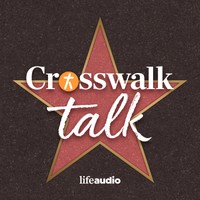
8 Dangers Of The Internet Threatening Kids Every Day
March 23, 2018

Dangers Of The Internet 1: Bait & Switch
Children's innocence naturally makes them naive. And that's why the Internet is such an unsafe place for them. Taking things at face value online can be very dangerous. It's not always easy (even for adults!) to weed out what's a scam or hoax. Take the Joanna Gaines facial cream scam as an example. A phony “article” -- designed to look as though it came from Cosmopolitan magazine -- enticed folks to purchase products from Joanna Gaines' new skincare line. The fake ad was so convincing, the star issued a statement to her fans, warning them not to get duped. (Read more about the Joanna Gaines facial cream scam here) RELATED: Mom Warns Of Live Streaming’s Hidden Dangers While kids don't necessarily care about Joanna Gaines facial cream, there are plenty of traps online aimed at them. One mom thought her young daughter was watching an episode of a popular kid's show, Peppa Pig, through YouTube Kids app. But when she looked closer, she realized this wasn't the Peppa they knew! (Read the full story here) Credit: Youtube screenshots Unfortunately, plenty of sketchy people realize kids are drawn to their favorite cartoon characters. Show them an image of Mickey and Minnie Mouse, and they’re going to click. However, there are loads of videos that, at first glance, look just like another online kid’s cartoon. But click play and you'll find they actually contain adult themes, not suitable for children at all! There are even entire YouTube channels designed to look like they're for kids, but you’ll find titles like “Hulk Loses His Pants” and “Sexy Frozen Elsa Bath Time.” Kids are still learning how to use discernment, so it's up to us to protect them from these kinds of bait and switch dangers of the Internet.Dangers Of The Internet 2: Online Predators
This one probably doesn't come as a huge surprise. Most people have seen enough Dateline: To Catch A Predator to know there are droves of less than savory characters online, looking to take advantage of young boys and girls. But what some parents don't realize is just how many different avenues these predators now have towards getting at our kids. Their reach goes far beyond chat rooms. RELATED: Single Mom’s Warning About Predators and Daughter’s Abuse Nowadays, new apps are coming out each and every day -- Kik, Snapchat, Whisper, Blendr -- the list goes on and on. Kids often get on these apps to send messages, share photos and socialize with their friends. But predators get on them to do the same, only with YOUR kid! Even with privacy settings and enhancements, it's always important to restrict the amount of personal information your kids are sharing online. Even supposed "kid-friendly" apps aren't fool-proof. No matter how innocent the app may seem, always be cautious.Dangers Of The Internet -- Real-Life Stories Of Predators
One dad, Brad Summer, downloaded a music app called Musical.ly so his 7-year-old could create "goofy duets" with her close friends. She was only allowed to use it while supervised and thank God! A person named “Jessy” befriended Brad's daughter on the app, claiming to be a 9-year-old peer. His daughter accepted the request, assuming Jessy was a friend of one of her cousins. But then Jessy started messaging Brad's daughter, asking her to send photos and engage in sexually charged conversation. Click here to read more about Brad's terrifying encounter! Credit: ABC News/Facebook Parents should be especially careful of anonymous apps with no age restrictions (like Kik), along with self-deleting or "disappearing" messages (like Snapchat). Predators are masters at manipulation. They often prey upon children's naiveté and insecurities. And authorities believe one of these anonymous messaging apps led 13-year-old Nicole Lovell straight to her murderers. The teen was bullied at school and found her escape by chatting with strangers on these apps. Sadly, one night, she snuck out to meet up with her "boyfriend," and her body was found four days later. Click here to read all of Nicole's heartbreaking story.Dangers Of The Internet 3: Privacy
Kids love to use social media and the Internet to connect and share with their friends. But it's easy for them to forget or miss the fact that there are way more strangers online than friends. It's important to help them understand that anything they post online, even in the most "private" way, could come back later to haunt them. There are people who find ways around the anonymity and "temporary" nature of "vanishing" images or messages some sites and apps promise. Then, scandalous photos shared for "fun" or "excitement" could wind up embarrassing kids at school or even keeping them from getting the dream job or internship later in life. RELATED: Man Helps Parents How To Understand Their Teenagers Better Likewise, personal information could wind up in the hands of identity thieves or even predators. Kids don't often pay too close attention to privacy settings, which can change or get bypassed. They most likely aren't going to read the fine print on the newest update or feature all their friends are using.Dangers Of The Internet -- Real-Life Privacy Issues
For example, when popular app SnapChat rolled out a new feature called Snap Maps, lots of people were up in arms. By using basic location tracking, the app put the user’s emoji onto a map. Credit: Youtube/SnapChat In other words, whenever a user sends out a Snap, the feature showed their location, right down to the street!"People can see where you are," WPTV internet security expert Alan Crowetz explains. "It’s a stalker’s delight. A pedophile would be all over something like this."Many users didn’t even realize this feature had been rolled out or that it had to be manually turned off. (For more about Snap Maps, including how to disable the feature, click here)
Dangers Of The Internet 4: Adult Content
This one's a biggy. Access to pornographic and sexually explicit content is everywhere. And kids can easily happen upon it online whether they are looking for it or not. And while no parent wants their child viewing pornography, not all realize just how damaging it can be, especially to young and developing minds. Since the explosion of Internet-connected devices, the average age of exposure to pornography has dropped to eight -- eight! At such a young age, children's brains are still developing and forming core values and beliefs. Pornography gives a very skewed and very negative view of sex, marriage, and our very own bodies. Accidental exposure can trigger curiosity, tempting kids to turn to Google or YouTube rather than their parents to answer all those embarrassing sex questions. RELATED: 4 Pastor’s Wives Invited Their Pregnant Friend To A Strip Club What's worse is that with repeated exposure comes the risk of developing a pornography addiction. In fact, studies are showing that watching pornography literally changes the brain. Pornography activates the part of the brain called the reward center, triggering the release of a chemical "cocktail" leading to a type of high, much like using drugs. One of those chemicals (DeltaFosB) is huge in developing addictive/compulsive behaviors. As someone continues watching pornography, the further addiction takes root -- increasing cravings and escalating risky behavior ("acting out"), while degrading personal connections, drive, and decision-making skills. This addiction threatens both men and women, rich and poor (lots of what's on the Internet is free) -- even religious leaders! After keeping his addiction secret for years, actor Terry Crews now makes it his mission to speak out about his own struggles.“My problem with pornography is that it changes the way you think about people. People become objects. People become body parts. And things to be used, rather than people to be loved. You start to change the way you see people. You start to use people,” Terry revealed.Thankfully, Terry got help to overcome his addiction and his is a story of victory! Hear Terry Crews open up about the real danger of addiction by clicking here.
Dangers Of The Internet -- Real-Life Stories Of Unexpected Adult Content
But exposure isn't as a cut and dry as an Internet search on the home computer. Apps, even seemingly innocent ones, can expose children to foul language, adult humor, and even pornography. As an example, Minecraft is a wildly popular video game (often described as a virtual Lego world) that is especially appealing to kids. It's available on just about any device and the game itself is fine. It can even offer some real educational benefits. But there's a chat feature in the game, which poses the risk of inappropriate conversations with strangers. Also, the game allows for user-generated modifications (called mods) available for download. These are codes allowing users to change the available items and actions in the game. However, independent “techies" create these game “add-ons.” So, the nature of the content is entirely up to the person creating it. One mommy blogger warned other parents of these mods after making a terrible discovery -- a Minecraft sex mod. These types of “mods” allow for things like character nudity and lewd acts. Things that, quite frankly, don’t belong in the game regardless of the player’s age. Credit: YouTube / Adrian_YT And even if your child isn't downloading and using these mods in their own game, YouTube offers tons of inappropriate videos posted by users who have. Kids often turn to YouTube videos for ideas and tutorials on how to create their own Minecraft world, so the odds of them stumbling upon one of these videos by accident are extremely high. Read more about things to be careful of in Minecraft here.Dangers Of The Internet 5: Addiction
When most people think of addiction, smoking, drug use, and alcoholism are usually what comes to mind. But it doesn't just take an outside chemical substance to create compulsive, addictive behavior. RELATED: One Mom’s Technology Experiment Is A Powerful Reminder For Us All We've already talked about how the Internet increases the risk of pornography addiction. But it can also spark plenty of other types of unhealthy behaviors and potential addictions. For starters, online gambling. Scientists have found that gambling addictions are incredibly similar to drug addiction. And now, the Internet brings the "casino" right to the gambler's home. Video games can also become addictive. What begins as a pastime can start eating up more and more time, as players try to beat top scores, unlock new achievements and plenty of other game "perks" created for the purpose of getting players hooked. Also, exposure to violent and/or adult-themed games can begin to alter and degrade values and belief systems. Think gaming just threaten kids? Think again. Research suggests millions of men are debilitatingly hooked on leisure in the form of gaming, pornography or both. Some economists and social scientists are even voicing concern that the amount of men who play games instead of work is a real threat to economic growth.Dangers Of The Internet -- Don't Try To Serve Two Masters
Credit: ©Thinkstock/sapozhnik Limited screen time is important for all of us. Folks, including a growing group of tech insiders, are realizing devices, and even the Internet itself, are addictive. In fact, former Google product manager Tristan Harris claimed companies like Snapchat and Facebook biochemically hook users with "brain hacking" technologies. He likened the impact of constant social media notifications and updates to the unending lure of slot machines. Likes, emojis, text messages, followers, Snapchat streaks and so on all keep users obsessively checking in for more. To read more about digital device addiction, click here. When we start spending excessive amounts of our time, money and attention to things that aren't glorifying God, there is cause for serious concern. God doesn't mind us relaxing and having some fun, but moderation and boundaries are key. You cannot serve two masters (Matthew 6:24)."Satan isn’t a creator but a plagiarist. His power is parasitic, latching on to good impulses and directing them toward his own purpose." said theologian Russell Moore when discussing video game and pornography addictions.Here are 5 critical questions to ask before watching TV, getting on a device or playing a video game.
Dangers Of The Internet 6: Cyberbullying
Bullying is never ok. Sadly, though, it has been around far longer than the Internet or even computers. And most kids will encounter it at some point. Most bullying used to take place in the schoolyard. Kids could usually escape the taunting at home and on the weekends. But now, social media and digital devices keep kids connected 24/7, not just to their friends, but to bullies, too. RELATED: Anguished Dad Speaks Out After Bullying Leaves His Son Wanting To End His Life Online, kids open themselves up to scrutiny from fellow classmates, but also from thousands of strangers -- often without realizing it until it's too late. At school, adults can intervene. But online, kids are left to fend for themselves.Dangers Of The Internet -- True Stories Of Cyberbullying
Lizzie Velasquez is an incredibly inspiring woman who was born with a rare genetic disorder causing her to look very different from her peers. When starting school, kids were frightened by Lizzie's appearance. But God blessed this little lady with a big spirit! Credit: Twitter She forged ahead and soon she was making friends and getting involved. Things were going well. Then she came across a video of herself on YouTube titled "The Ugliest Woman Alive." Along with the cruel title, the video had 4 million views and a slew of mean comments filling the bottom of the page. Comments saying her parents “should have aborted” her. . . that she should be “killed with fire”. . . that she should “do everyone a favor and end her life.” To add insult to injury, all of the comments were mean. Lizzie is incredibly strong. She decided neither her condition nor the hurtful comments she'd seen and heard would define her. Instead, she’d let her accomplishments define her. With such grit and determination, she has had many and she now travels the world as a motivational speaker, mentoring and encouraging others. (Read more about this amazing woman's true inspirational story here) But many stories of cyberbullying don't end like Lizzie's.Dangers Of The Internet -- Cyberbullying Can Lead To Suicide
Relentless online bullying is what drove 12-year-old Mallory Grossman to end her life. Credit: Facebook/Mallory's Army Mallory was an involved, sweet and caring kid with plenty of friends and activities. But when middle school bullies decided to make her life miserable both online and off, she eventually felt like suicide was the only escape. Her death rocked her community. And it highlights why cyberbullying has become such a serious danger of the Internet. (Read more of Mallory's story here.)Dangers Of The Internet 7: Online Dares And Challenges
Kids and common sense don't always go together -- especially when peer pressure comes into play. And now, online dares and social media challenges just encourage even more risky behavior. RELATED: Online ‘Pass-Out’ Game Is Suspected Cause Behind 11-Year-Old’s Death Online dares started out as just "silly" stunts that could sometimes cause accidents. For example, the Duct Tape Challenge, which involves wrapping someone in duct tape and then timing and filming their attempts at escape. This "silly" dare resulted in a serious head trauma when 14-year-old Skylar Fish fell (read his story here). Over time, the challenges have gotten even more reckless and dangerous. The Salt And Ice Challenge sent plenty of kids to the hospital with burns and potential nerve damage (read more about this danger here). The Tide Pods Challenge encourages kids to intentionally ingest poison! Burns from the Salt And Ice Challenge Credit: Instagram / @eleni.panagiwtou (left) & @chase_guns170vlogs (right) While avoiding dangerous stunts like these may seem like common sense, our hyper-social society has even the “good kids” seeking validation online. The videos and posts spanning across social media outlets like YouTube glorify the reckless behavior as entertainment."It's a cool factor," says therapist Hollye Grayson, M.A., MFT, who works with a lot of teens. "‘Look how cool that is. Look how many hits, how many people are looking at that cool thing he did.'"Kids, in general, are susceptible to peer pressure. But online validation is a different kind of approval than they receive from parents or teachers, so even high achieving children crave this kind of attention. (Read more here) Some challenges can even take on a darker side, like the Blue Whale Challenge, which promotes and encourages suicide and self-harm. So, it's important to arm kids with examples of the consequences resulting from these Internet dangers.
Dangers Of The Internet 8: Distraction
These days, it's not hard to find kids and adults alike with their noses buried in their cell-phones. My heart broke one day at the playground as I watched a little girl toddle her way around the equipment, gleefully calling out to her dad who never took his eyes (or thumbs) off his phone. But outside of addiction, the distraction offered by the Internet poses physical risks, too. Screens are becoming so distracting, it inspired Chick-fil-A to come up with a Cell Phone Family Challenge. Diners were encouraged to set their cell phones on silent, then drop them into a “cell phone coop.” Leave them there for the entire meal and win a free ice cream cone! Credit: Facebook / Chick-fil-A Read more about the Chick-fil-A Cell Phone Family Challenge here.Dangers Of The Internet -- Real-Life Stories Of Distraction
An epidemic of distracted driving has resulted from the urge to constantly be monitoring and updating texts and social media. One young lady left a man with permanent brain damage when she decided to take a Snapchat (a photo app) while she was driving (hear the full story here). A husband lost his entire family after a suspected distracted driver suspected blew through a stop sign, hitting the vehicle carrying the man's pregnant wife and 3 sons (the full story can be found here). RELATED: Unusual Texting And Driving Message You Won’t Forget But device distraction can cause physical harm to folks who aren't even behind the wheel. When the Pokemon Go mobile game took America by storm, reports poured in of injuries related to the virtual scavenger hunt. With their eyes glued to their screens, players became oblivious to anything else. The distracted users came away with bumps, bruises, broken bones, and some even walked right into on-coming traffic! (Read more about it here) Selfies are another way people can become completely distracted by their phones. Kids will sometimes put themselves in extremely dangerous places all in the name of snapping that "perfect" picture to share online. Three girls actually lost their lives taking a train track selfie, as well as forever traumatized the railway workers unable to stop the accident. (Read the full story here) While not all cases are as extreme as these examples, parents certainly want to make sure the Internet and devices don't become too distracting for their children (or themselves!).Dangers Of The Internet -- What You Can Do
Raising kids has never been for the faint of heart, which is why they say it takes a village! Whether you're a parent yourself, a grandparent or some other type of role model, here's what you can do to help protect the children you love from the dangers of the internet.1. Get Educated
Technology is so fast moving it’s easy to fall out of touch. But as parents and grandparents, we have a responsibility to stay educated on the things that pose a risk to our children. And these days, those risks come in the form of smartphones, tablets, and computers. Find ways to stay in the loop. Ask your kids to give you a "crash course" in the latest apps and electronics they're using (it can actually be a bonding moment!). Be on the lookout for free classes or seminars offered by schools and libraries. Find trusted online sources offering how-tos and advice.2. Have Open And Honest Conversations
Be sure to have firm and clear boundaries around any Internet use, including Internet-connected devices and social media accounts. Outline what is and isn't allowed. Be open with your kids about the dangers of the Internet and the serious consequences that come as a result. Explain that your number one priority is to keep them safe because you love them! Make sure this is a conversation rather than a lecture. Encourage your child to be a part of the conversation by allowing them to ask questions and express their own feelings and concerns. Plan on checking in periodically to keep this as an on-going dialogue versus a one-time chat. Because if you don't listen to your kids, they'll be more likely to try and find someone who will!3. Use Parental Control Software
In addition to talking with kids about the different risks the Internet poses, parents can also consider installing parental control software like Forcefield, which enables them to monitor and manage their child's access to apps and the Internet. (Learn more about Forcefield HERE).WATCH: Quick Tour Of Forcefield Parental Control Software
4. Pray Take all of your concerns about your kids and the dangers of the Internet to the Lord. Be as specific as possible and ask God to give them the wisdom necessary to make sound decisions. Only when we realize this is a spiritual battle can we hope to protect our kids. The earnest prayer of the righteous person has great power and produces wonderful results" (James 5:16). As technology advances, our world and the dangers that exist will continue to change and evolve. But God's Word is the same yesterday, today, and tomorrow. If we measure our decisions and actions by what the Bible says, we can't go wrong! Be sure to pass this story along to warn others of the dangers of the Internet! YOU MAY ALSO LIKE: 10+ Modern Sins Christians Ignore That Are Impacting Their Faith Walk
Today's Devotional
A Prayer to Lead Us to the Manger - Your Daily Prayer - December 14
Read Today's DevotionalToday's Devotional
A Prayer to Lead Us to the Manger - Your Daily Prayer - December 14
Read Today's DevotionalPast Stories
- They Said He Might Not Survive, but God Had Other Plans, Teen Burn Victim Is Finally Going Home
- In Their Deepest Grief, a Family Looks to God for Hope After Losing Their Son
- Students Learn Sign Language to Sing ‘Happy Birthday’ to Their Deaf Therapy Dog
- Teen Scouts Spend 2 Hours Carrying Injured Hiker to Safety After Finding Her on Mountain
- Born at Just 1.3 Pounds, This Tiny Miracle Baby Is Finally Heading Home From the NICU
- Couple Who Just Celebrated Their 83rd Anniversary Share the Key to Their Long Marriage
- Mom Thought Her Son Was Dead, But God Worked a Miracle, and His Life Was Saved
- Senior Couple Met at the YMCA, Then Get Married in the YMCA Pool
- Hawaii Lifeguard Still Recovering 11 Days After Shark Attack Describes the Moment It Struck
- Woman Gets a Glimpse of the Past When She Finds a Love Letter From WWI in Her Attic
- He’s 98, a WWII Vet, And Finds Joy Working at Lowes 3 Days a Week
- After Being Diagnosed With Autism at 3, One Man is Following His Dreams and Inspiring Others
- Texas Woman Finds Her Wedding Ring After Thinking Everything Was Lost in a Fire
- This Christmas, the Widow of a Beloved Santa Receives a Gift That Reminds Her She’s Not Alone
- She Wasn't Supposed to Live Past 4, Now at 20, Woman Born Without a Brain Is a Living Miracle
- Family’s Tree Will Shine for Millions: Widow and Son Donate 2025 Rockefeller Center Christmas Tree
- From a DNA Match, a Woman Meets Her Biological Father For the First Time
- Nearing 100, Dick Van Dyke Says the Secret to His Long Life Is Simple: ‘Never Stop Singing'
- When Floodwaters Rose, One Teen’s Courage Became a Lifeline for Strangers
- 2-Year-Old Mini Goldendoodle Alerts Family of House Fire Saving Their Lives
- Police Show Grace and Humor After Teens Toilet Paper Their Headquarters
- First Responders Pull 40-Pound Dog to Safety After Cliff Fall in San Francisco
- Volunteer Firefighter Overcomes Tragedy to Serve Her Community Again
- When Mom Suffered a Seizure, Her 3-Year-Old Son’s FaceTime Call Saved Her Life
- Teenager Opens Up Burger Joint and Gives Back By Offering Free Meals to Veterans All Year Long
- Idaho Man is Rewarded For His Act of Kindness by Mowing a Stranger's Lawn
- A Girl's Volleyball Team in Texas Raises Money to Buy Their Custodian a Car
- After Decades Apart, God Leads a Cancer Warrior Back to Her Birth Mother
- Mother Notices Something Isn't Right With Her Daughter's School Bus and Saves 22 Children
- Lost Dog is Found Using His 93-Year-Old Owner's Dirty Socks
- At 80, She Became the Oldest Woman to Hike the Appalachian Trail
- In Their Grief, These Parents Found Hope, When Their Son’s Organs Saved More Than 100 Lives
- Wild Bear Finds His Way Into a Zoo and Starts Mingling With the Locals
- She’s 101, Still Working Six Days a Week—and Says She Wouldn’t Have It Any Other Way
- Retired Teacher Needed a Kidney, and a Former Student Answered the Call
- When a Dog Fell Into Danger, This Officer Dove In to Save Him Without Hesitation
- 10-Year-Old Florida Girl Scout Saves Her Father's Life Using Her First Aid Training
- Two-Year-Old Found By A Volunteer and K-9 After She Wandered Off and Was Missing For Hours
- Family and Friends Celebrate the Life of a Woman Who Loved So Deeply
- North Carolina Couple Win the Lottery and Can Finally Go On Their Honeymoon After 31 Years
- Quick-Thinking California Teens Rescue Surfer After Ocean Injury
- 8-Year-Old Boy With Rare Health Condition Experiences Life as a Firefighter for a Day
- British Man and His Skydiving Instructor Survive Falling 11,000 ft to the Ground After Malfunction
- He Was Having a Heart Attack, Then His Next Door Neighbor Came and Saved His Life
- 23-Year-Old Who Lost Both Parents in the Same Month is Now Guardian of His Little Brothers
- Her Dog Was Finally Found 2,000 Miles From Home After Going Missing During a Storm
- Brothers Out on a Walk Didn't Think Twice about Saving a Drowning Boy
- Young Man and His Father Help Their Community by Providing Free Lawn Care to Those in Need
- Nursing Home Resident in Indiana Gets a Touch of Disney Magic Without Leaving Home
- Police Dog Earns Yummy Reward From McDonald's When He Finds a Missing Man With Dementia
Top Artists
Top Music Videos

toby mac TobyMac Drops ‘a Lil Church’ Official Lyric Video

Anne Wilson Anne Wilson Releases ‘Til the Road Runs Out’ Lyric Video
![Gaither Vocal Band - Mary, Did You Know? [Live]](https://i.swncdn.com/cdn/160w/godtube/2012/08/31/413405-004.jpg)
Gaither Vocal Band Gaither Vocal Band - Mary, Did You Know? [Live]

chris rupp Beautiful 'O Come All Ye Faithful' Cypress Fyre A Cappella Cover

Anne Wilson Anne Wilson's 'God Story' Lyric Video Inspires and Uplifts with Every Line
Blog
At GodTube, you’ll find daily inspirational videos to lift your spirits and encourage you in your walk with God. Popular videos include worship music from your favorite Christian artists, cute videos with adorable kids and animals, hilarious videos from Christian comedians, user-uploaded videos, and clean viral videos to brighten your day.









